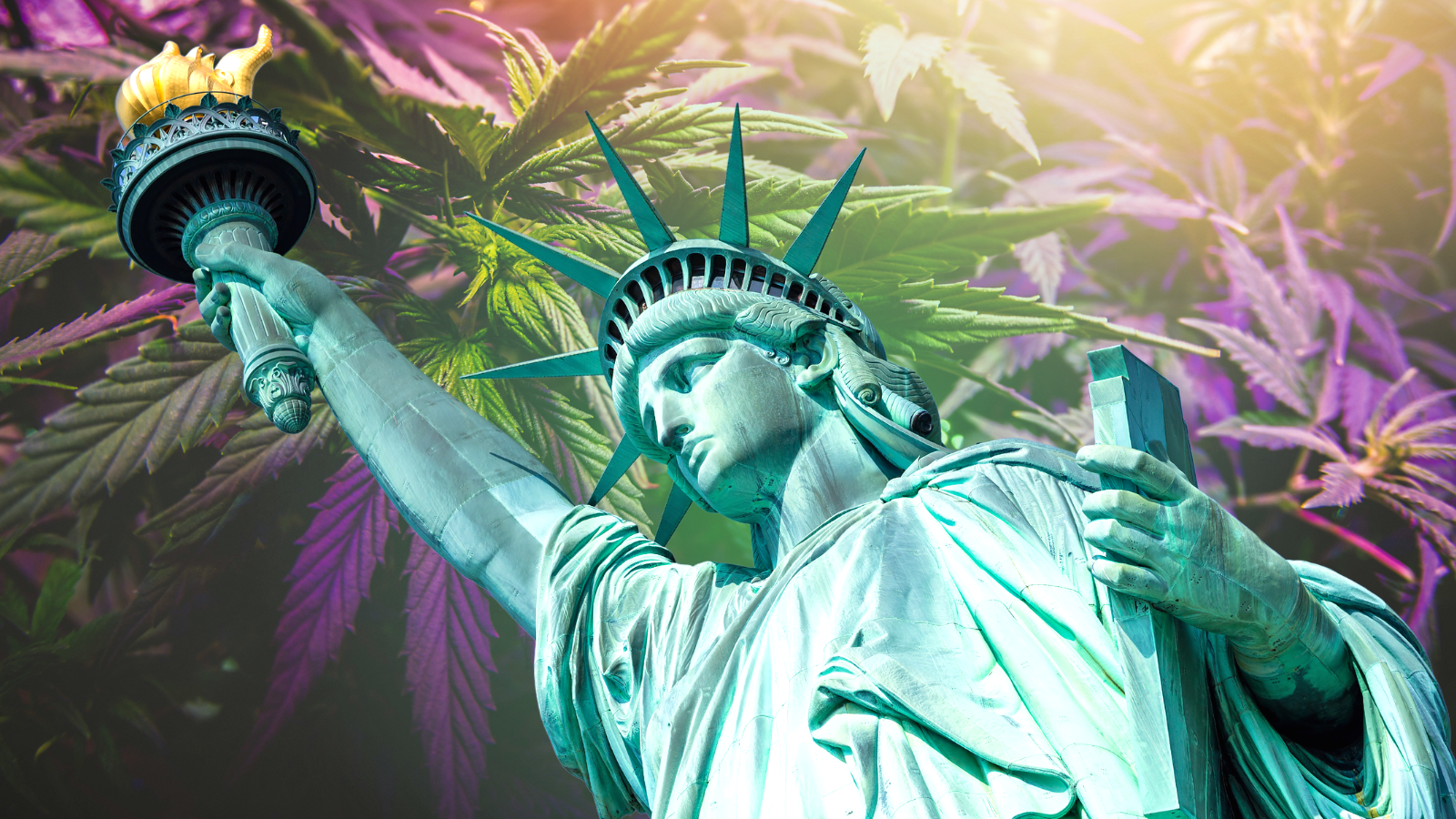The push for legalizing recreational marijuana has been gaining momentum across the United States. With Delaware recently joining the ranks as the 22nd state to legalize cannabis for recreational use, the movement shows no signs of slowing down. However, in the densely populated Tri-State area encompassing New York, New Jersey, and Connecticut, the rollout of legal weed has been plagued by delays and inefficiencies. This slow implementation has inadvertently led to the flourishing of an underground economy of “gray” market cannabis shops and businesses that operate outside the regulatory framework. The situation has created a host of challenges for both regulators and legitimate businesses in the industry.
The Slow and Cumbersome Rollout of Legal Weed
Implementing regulations and issuing licenses for the legal sale of recreational marijuana has proven to be a time-consuming and intricate process in the Tri-State area. State authorities have encountered numerous hurdles and complexities, causing significant delays. These delays have created a gap in the market, allowing unlicensed and unregulated businesses to thrive. While the intention was to establish a tightly regulated industry, the slow pace has inadvertently fueled the growth of the “gray” market.
The Proliferation of “Gray” Market Cannabis Shops
One of the most prominent consequences of the sluggish rollout of legal weed is the emergence of a large number of illicit businesses operating in the shadows. In New York City alone, it is estimated that approximately 1,400 “gray” market storefronts and businesses currently sell marijuana without a license. These businesses operate outside the legal framework, circumventing regulations and avoiding the scrutiny faced by their licensed counterparts. This proliferation of unlicensed cannabis dispensaries poses a significant challenge to legitimate businesses that have undergone the rigorous process of obtaining the necessary permits and licenses.
The Call to End Unlicensed Cannabis Dispensaries
The presence of unlicensed cannabis dispensaries has not gone unnoticed by authorities. Manhattan District Attorney Alvin Bragg, during a news conference, emphasized the urgent need to put an end to the operation of these unregulated establishments. The concerns are not only related to fair competition but also extend to public safety and the need to protect consumers. Without proper regulation and oversight, there is a risk of compromised product quality and potential harm to consumers. Therefore, efforts are underway to address this issue and establish a more robust regulatory framework that ensures the safety and legitimacy of the cannabis market.
Addressing Historical Wrongs with Social Equity Programs
While grappling with the challenges of the slow legal weed rollout, state officials are also committed to rectifying the injustices perpetuated by the decades-long “War on Drugs.” In recognition of the disproportionate impact that marijuana-related convictions have had on certain communities, New York, Connecticut, and New Jersey have incorporated social equity components into their recreational marijuana programs. These components aim to promote fairness and provide opportunities for individuals who have been negatively affected by past cannabis-related convictions.
One such program focuses on granting licenses to individuals with previous cannabis charges and those from communities that have borne the brunt of the war on cannabis. By prioritizing these applicants, states aim to create a more inclusive industry that addresses historical inequities. Tahir Johnson, a social equity applicant set to open Simply Pure Trenton in New Jersey’s capital city, emphasizes the importance of hiring individuals who have firsthand experience with cannabis-related charges and who come from affected communities. This approach not only fosters economic opportunities but also helps to empower those who have historically faced barriers due to their association with cannabis.
The High-Stakes Nature of the Recreational Marijuana Market
The recreational marijuana market presents significant economic potential, with estimates projecting national sales to reach a staggering $71 billion by 2030, according to research firm New Frontier. Within this landscape, the New York state market alone has the potential to contribute approximately 10% of that figure. The numbers underscore the tremendous opportunity for economic growth and job creation that the legal cannabis industry can offer.
As states continue to refine their regulations and streamline the licensing process, they pave the way for a more vibrant and sustainable cannabis market. While challenges persist, the ongoing efforts to establish a robust and regulated industry will lead to increased consumer confidence, improved product quality, and fair competition among businesses.
Conclusion
The slow and cumbersome rollout of legal weed in the New York City metro area has inadvertently given rise to a flourishing “gray” market of unlicensed cannabis shops and businesses. While the challenges are significant, state authorities are actively working to rectify the situation and promote a fair and regulated cannabis market. Efforts to address historical wrongs through social equity programs demonstrate a commitment to inclusivity and opportunity for those affected by past cannabis-related convictions. The economic potential of the recreational marijuana market further reinforces the need for a well-regulated industry that can harness this growth and provide benefits to communities at large.
As the Tri-State area continues to navigate the complexities of legalizing recreational marijuana, it is crucial to strike a balance between regulation, social equity, and economic growth. By doing so, a vibrant and legitimate cannabis industry can emerge, offering safe and regulated access to cannabis products while addressing historical injustices and fostering economic opportunities.
FAQs
Q: What is the current status of recreational marijuana legalization in the Tri-State area? A: Currently, recreational marijuana is legal in New York, New Jersey, and Connecticut. However, the rollout of legal weed has faced challenges and delays, resulting in the proliferation of unlicensed cannabis shops.
Q: How are “gray” market cannabis shops affecting legitimate businesses? A: The presence of unlicensed cannabis dispensaries poses unfair competition to legitimate businesses. It undermines the regulatory process and may compromise consumer safety due to the lack of oversight.
Q: What are the social equity components in the recreational marijuana programs? A: The social equity components in the programs focus on granting licenses to individuals with previous cannabis charges and those from communities disproportionately affected by the war on drugs. This aims to promote inclusivity and economic opportunities
Q: What are the economic projections for the national cannabis market? A: The national cannabis market is projected to reach $71 billion in sales by 2030, according to research firm New Frontier. The New York state market alone could contribute approximately 10% of that figure, highlighting the significant economic potential of the industry.
Q: How can individuals access legal recreational marijuana in the New York City metro area? A: Individuals can access legal recreational marijuana through licensed dispensaries that comply with the regulatory framework. It is important to ensure that the dispensary is operating within the legal framework to guarantee product quality and consumer safety.



COMMENTS